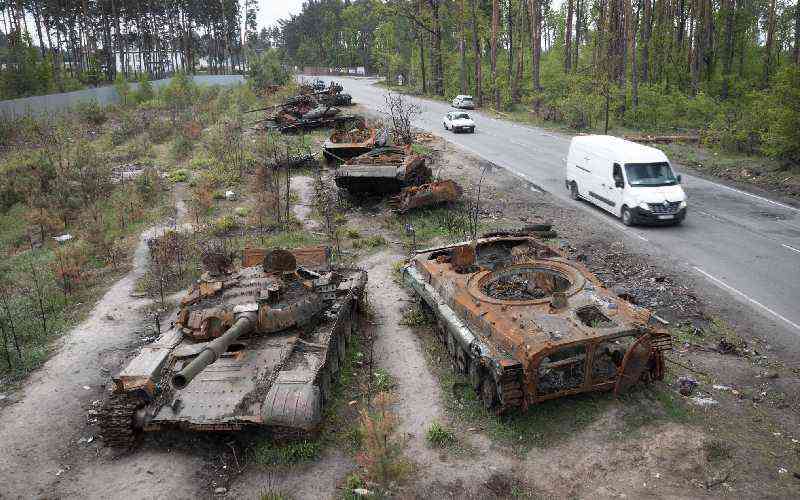×
The Standard e-Paper
Smart Minds Choose Us

Cars pass by destroyed Russian tanks in a recent battle against Ukrainians in the village of Dmytrivka, close to Kyiv, Ukraine, on May 23, 2022. [AP Photo/Efrem Lukatsky, File]
When Russian President Vladimir Putin invaded Ukraine on Feb. 24 in an unprovoked act of aggression, many expected a quick victory.